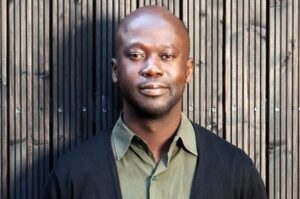Why the David Adjaye sex scandal story didn’t break in the Ghanaian media

The Financial Times has published a disturbing story of allegations of sexual misconduct against one of the powerful people in the world. David Adjaye is a colossus in the architectural world, the multi-award-winning architectural icon is also knighted by the Queen of England.
There are several reasons why the story wouldn’t have made it in the Ghanaian media. The women were in Ghana and according to their story to the Financial Times, they suffered a great deal of emotional and financial distress because of how Adjaye treated them. It is not out of place to think of the possibility of these women trying to interest a news organisation in Ghana to tell their story. But the story never made it in the Ghanaian media, and there are some reasons for that.
Three women Adjaye once employed and brought to Ghana to work on the ill-conceived National Cathedral have made allegations of sexual assault and abuse and poor employment conditions against him. Adjaye and his lawyer have vehemently denied the allegations, in some cases admitting to consensual sex. But the women say, they were coerced, out of fearing to lose their jobs or the opportunity to get along in their careers, considering the enormous influence that Adjaye wields around the world.
Adjaye opened his Accra office to build a cathedral. The cathedral was a personal dream of the President Akufo-Addo, but being financed with state funds. To start construction of the cathedral in a prime area at the centre of Accra, expensive residential facilities housing judges had to be pulled down.
According to the Financial Times (FT), the three women say their dealings with Adjaye disrupted their careers, left them in precarious financial circumstances and caused them serious mental distress.
Considering the stature of Adjaye and the possible repercussions these women feared, they didn’t want their names used in the story.
“The women, who requested their names be changed, share common characteristics. They were all black women in their forties at the time the alleged abuse occurred, and are single mothers, well-connected professionally and from influential families. All three women knew Adjaye before their employment and had friends and acquaintances in common with him,” the FT wrote.
The FT quoted Emma Katz, associate professor of sociology at Durham University, who said: “Coercive control is an attack upon everything about you that makes you, you. It’s like somebody is trying to turn you into a puppet on a string and take away your rights, your autonomy, your independence.” The shame generated in the victim by their treatment can also explain why they do not try and leave the perpetrator: “People can keep pursuing the same course of action because changing course means facing up to how bad things are, facing up to how traumatised they’ve been by it, so it can be better to keep your head down, stay numb, keep complying and not face up to it.”
But Adjaye’s lawyer admitted that Adjaye kissed Dunia one of the women, at the Royal Academy but “categorically denies” that her version of events is correct or that “he exhibited abusive and controlling behaviour towards [her]”.
He told the FT that contemporaneous communications show that their interactions were consensual.
Through his lawyer, Adjaye “rejects entirely the overall portrayal of his conduct during their relationship, such as the claims about his attitudes towards black women and the imputation that his behaviour was ‘belittling’”, the FT reported.
According to the FT report, the women made reports to the Ghana police, but were told the police didn’t have jurisdiction over a criminal matter that happened in another country.
Among many reasons, including but not limited to the stature of Adjaye alone would likely make a typical media house in Ghana not to follow the story. Any journalist following the story would be pressured by influential people not to go ahead. Sometime ago, a reporter pursuing a story about the fake degree of a popular PR company owner in Ghana was told not to continue because he would damage her reputation and he stopped.
In some instances, politicians would call journalists and question them about their interest in pursuing a story. Managers of newsrooms would be called and advised to pull their reporters off the beat, and they are likely to oblige.
The reporter or reporters might be accused of doing someone’s bidding to tarnish the reputation of the architect. They would likely be threatened. In some cases, their family members would be called to advise them to drop the story. Even fellow reporters and editors would be called to ‘talk to them’ to stop following the story.
If they go ahead to publish the story; if it’s on their website, they would get countless phone calls asking them to take it down.
But more importantly, media houses that might even show interest in pursuing this story, might not have the resources to do so.
By Emmanuel K Dogbevi
Copyright ©2023 by NewsBridge Africa
All rights reserved. This article or any portion thereof may not be reproduced or used in any manner whatsoever without the express written permission of the publisher except for the use of brief quotations in reviews.
